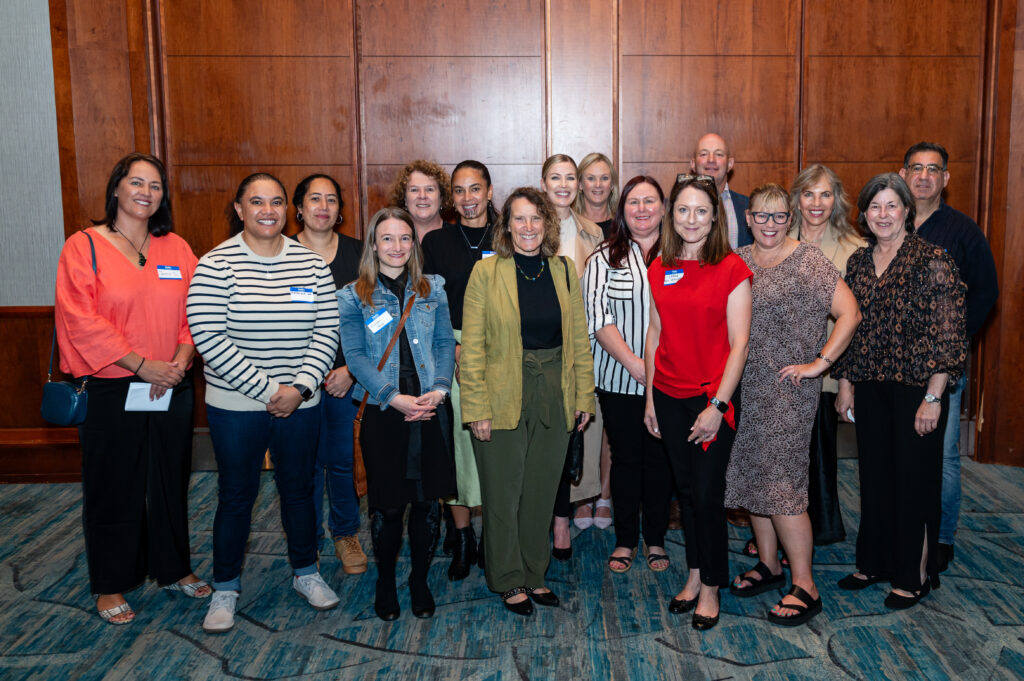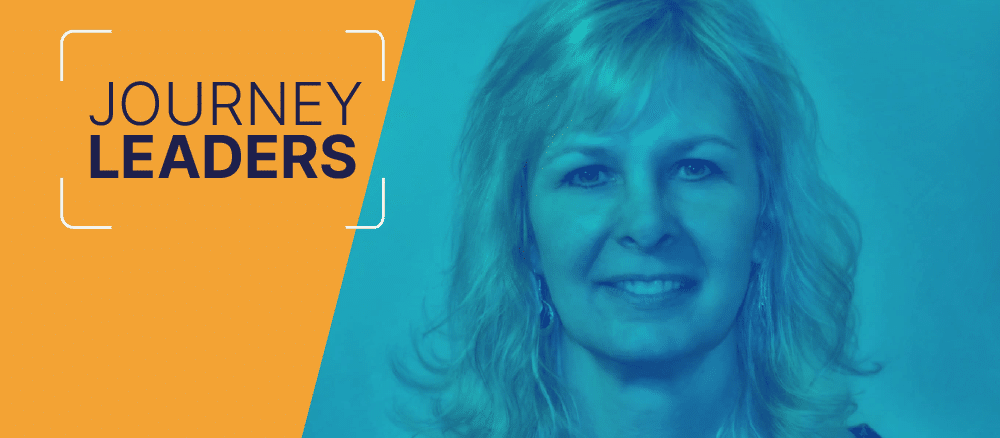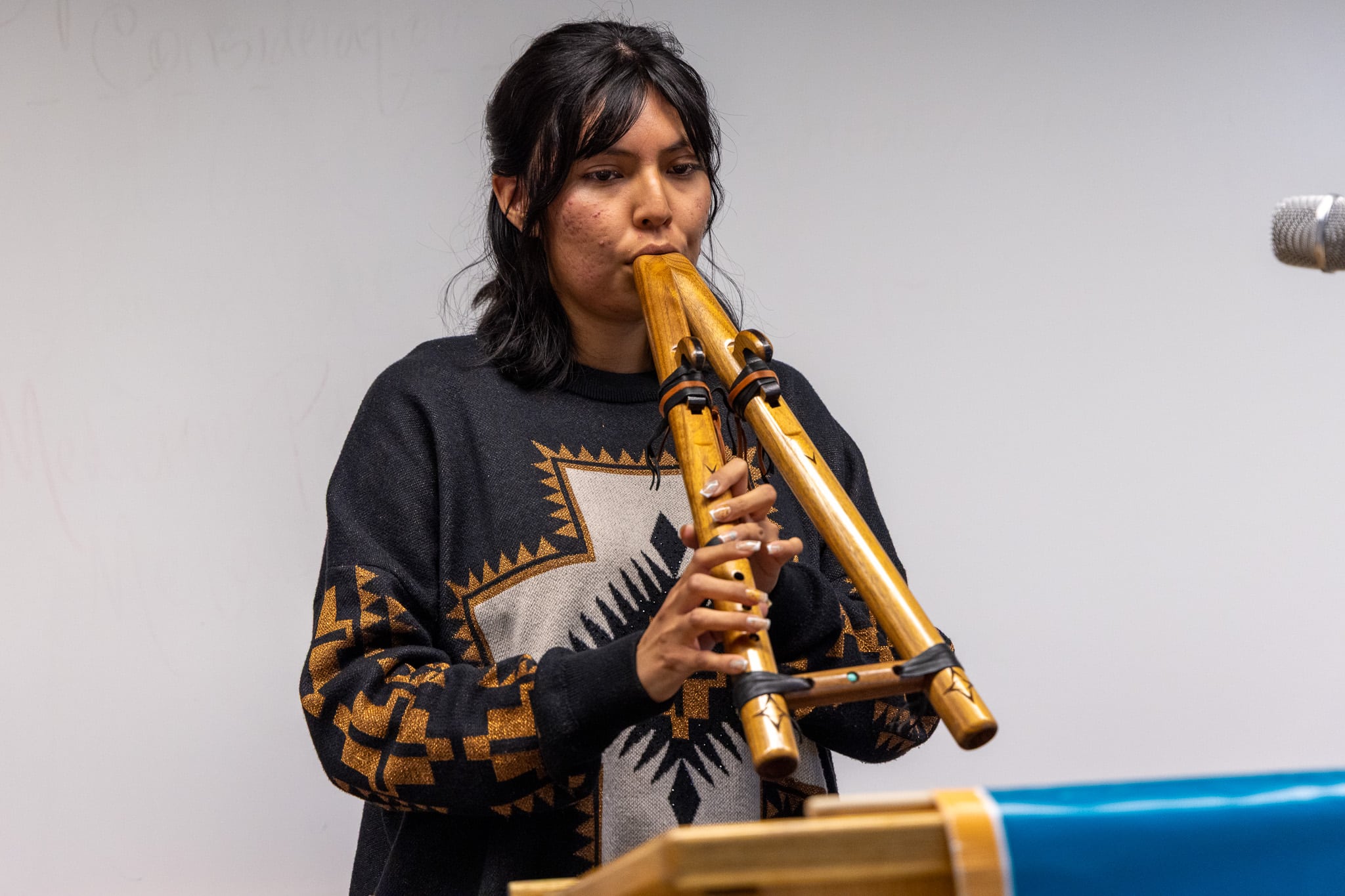DREAM 2024 marked the 10th year that institutions from other countries have participated in the DREAM conference. Delegates from New Zealand have been coming since 2018, sharing ideas with U.S. leaders and bringing new ideas about community and equity to the collective learning of the ATD Network.
Cheryl de la Rey, vice-chancellor of the University of Canterbury (UC), has participated in this international exchange herself since 2017 — but not always visiting from New Zealand.
Prior to beginning her tenure at UC in 2019, de la Rey was vice-chancellor of the University of Pretoria in South Africa. The university was one of the initial participants in the Siyaphumelela Network, an initiative funded by The Kresge Foundation that seeks to broaden evidence-based student success strategies across South African universities.
De la Rey’s international experience as a higher education leader has shaped her perspective. She spoke to ATD about equity initiatives underway at UC, the role that international partnerships have played in driving momentum, and the importance of equity and community in higher education.
Kia Angitu
Since 2020 — a year after de la Rey became vice-chancellor, UC has run a student success program called Kia Angitu, which brings a range of initiatives focused on the first-year experience under one umbrella. These initiatives range from the early alert system ACE (Analytics for Course Engagement) to PALS (Peer Assisted Learning Support), a peer-to-peer program that convenes first-year students in regular group study sessions.
De la Rey said UC’s choice to focus on the first-year experience was grounded in data. “We’ve taken a data-driven approach, very much like ATD,” she said.
With collaboration from a colleague in the Georgia State University system, UC analyzed 10 years of historical data to inform the conceptual basis for Kia Angitu.
“Using that data, we focused on those first few months and then continuing into the rest of the first year, because what all the data suggests is that if a student succeeds in the first year, they build a set of skills and self-confidence that enables them to navigate the subsequent years, right through to graduation, much more successfully,” de la Rey said.
A rigorous culture of evidence and inquiry has persisted since the program launched in 2020: UC has been tracking performance data in real time to inform agile decision-making and adjustments.
Placing a high value on data-driven decision-making, de la Rey sees potential for New Zealand institutions to continue building capacity in this area. “I think we in the New Zealand system can develop and expand our data analytic tools, and particularly with a view to predictive analytics,” she said. “I’m quite supportive of us working together with ATD on a focus on data coaching.”
Inspiration and connection
Data coaching, one of the hallmarks of ATD’s work with Network colleges, is also one of the key elements of early collaborations between ATD and Siyaphumelela that de la Rey believes had a significant impact on higher education in South Africa.
After the university first sent delegates to DREAM in 2014, a colleague who attended “came back inspired,” using takeaways from the conference to fuel a symposium that the University of Pretoria hosted soon after. This would be one of the first Siyaphumelela Network events.
“That first invitation to ATD gave us access to not only an approach to student success but a network across the U.S. and a set of tools, such as data coaching and the use of data, that ultimately informed what is today Siyaphumelela,” de la Rey said. “So that early connection between the University of Pretoria and ATD, supported by The Kresge Foundation, has had a major impact across the South African university system.”
Years later, de la Rey encouraged her new colleagues at UC to attend DREAM with support from New Zealand’s Tertiary Education Commission (TEC). “And two of my colleagues came back totally motivated and inspired. In fact, that’s how they made a connection with Georgia State,” she said, referencing UC’s research partner for the data analysis that framed the Kia Angitu initiative.
Members of the New Zealand delegation, representing universities, colleges, nonprofits, and partners, gather at DREAM 2024.
In September 2022, UC hosted the Tūwhitia! Transforming Tertiary symposium, a cross-sector event focused on the systemic changes needed to reduce barriers to success for historically marginalized learners. The event was so successful that participants called for another, and in 2023 the second Tūwhitia symposium was hosted by Te Wānanga o Aotearoa, an Indigenous tertiary education provider. ATD President and CEO Dr. Karen A. Stout was the event’s international keynote speaker.
“Working with ATD has definitely had a wide impact, clearly in South Africa with Siyaphumelela, but here with what is emerging as Tūwhitia in New Zealand,” de la Rey said.
Thinking beyond the university campus
With an international perspective informed by her experiences from South Africa to DREAM conferences to New Zealand, de la Rey understands the impact higher education institutions have on students and their communities.
“I think institutions of higher learning, and particularly publicly funded or public institutions, have a responsibility to community,” she said. Recognizing that these institutions historically haven’t served all communities equally, she urged educational leaders to reflect on how they are meeting the needs of the communities they serve, as well as how they can improve.
In practice, de la Rey understands that this reflection must include a willingness to change. “That’s what a commitment to diversity actually means for me … looking at ourselves as an institution and saying, ‘Well, what does our commitment to diversity mean for the way we do things?’”
This equity-centered approach has impacts far beyond the college campus. “We know that an investment in a university education has a positive impact on the whole of society,” she said. In New Zealand as well as the U.S., for example, people who are the first in their family to attend college make it more likely that others in their family, and future generations, will also attend. Higher education levels are associated with positive life outcomes, from wealth to health, which have compounding benefits both for their broader communities and for future generations.
“And so really,” she said, “an investment in a university education is an investment in the future.”
This investment is also, to de la Rey, a global one. “If we look at the state of the world today,” she said, “and if we wish to build a future that produces better well-being and sustainability outcomes, ensuring that we have a commitment to equity in education is absolutely fundamental.”





